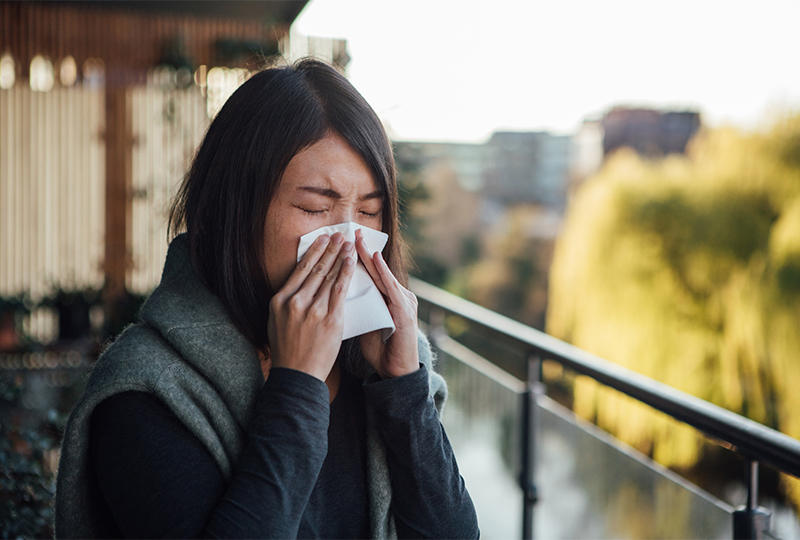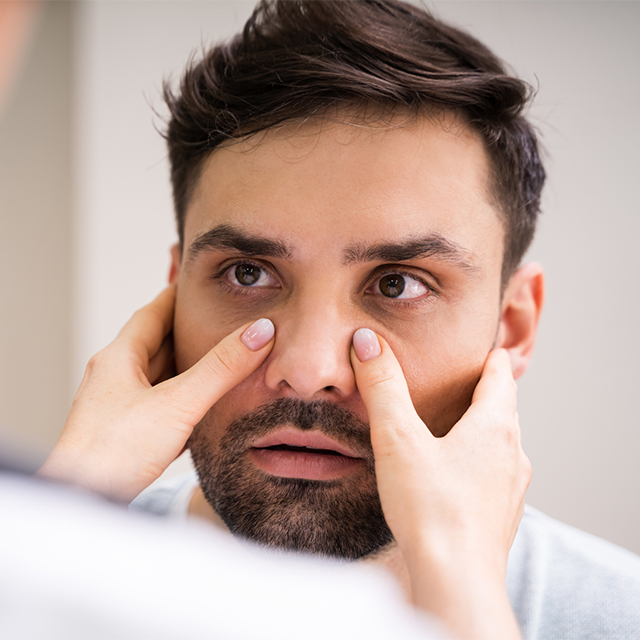Allergy symptoms and those of some illnesses overlap. Here’s how to use clues to tell what’s likely going on.
When you develop a case of the sneezes, a runny or stuffy nose, or itchy or watery eyes, you might wonder if you’re experiencing temporary allergy symptoms. On the other hand, some allergy symptoms mimic those of respiratory infections. So you might also suspect the common cold, a sinus infection, or a case of COVID-19 or the flu.
Allergy symptoms vs. signs of infection
“In general there are some pointers that can indicate to you whether it’s allergies or whether it’s a cold or something else that could be causing symptoms,” said Dr. Basil Kahwash, of the Vanderbilt Asthma, Sinus and Allergy Program.
Do you have allergies?
Have you been tested for allergies, and do you have a confirmed allergy diagnosis? If so, that certainly ups the chances that your symptoms are related to allergies, especially if they’re consistent with previous reactions, Kahwash explained.
Have you been exposed to a trigger?
“If you know what your allergy triggers are because you’ve been tested before and you know you’ve been exposed to something that is a trigger for you, then that’s also a sign,” Kahwash said. Likewise, the time of year may coincide with an allergy season that typically affects you. For example, your symptoms may be related to a high pollen count common in spring.
Do you itch?
If you have itchy eyes or an itchy nose, that could indicate allergies rather than another condition.
Do allergy meds help?
“Allergy symptoms will tend to at least get a little bit better when you take allergy medication,” Kahwash said. “Antihistamines, nasal sprays — things like that — if those aren’t cutting into your symptoms at all, then it’s probably not allergies.”
It could be both allergies and an infection
Intense allergy-like symptoms could signal a dual concern. “If you’re having a lot of inflammation and congestion inside your airways, we’ve seen how that can lead to the trapping of infectious organisms, whether they be viruses or bacteria, inside those parts of a person’s body,” Kahwash explained. “You certainly can get an infection on top of environmental allergies.” If it’s an early viral infection, the best measures include resting, drinking fluids and allowing time for healing, he added.
When to see a doctor for allergy-like symptoms
In general, you don’t need to see a doctor for mild allergy- or cold-like symptoms. However, if you’re having a highly productive cough, you’re wheezing or struggling to breathe, or have a fever that doesn’t resolve, you should see a health care provider. If you have a weakened immune system — due to a medical condition, cancer treatment or medications — check in with your doctor about your symptoms.
If you think you have a sinus infection, and your symptoms persist for a week or more, also contact your doctor. In most cases of sinus infection, you won’t need an antibiotic unless your symptoms don’t resolve or you have a high fever, Kahwash explained.
When to get tested for allergies
If you frequently find yourself wondering whether you’re dealing with a case of allergies or another condition, it’s a good idea to get tested. “I think allergy testing — to know what your triggers are and to know whether you’re allergic — makes sense for many people,” Kahwash said. “There are other things besides allergies that can make somebody have a stuffy or runny nose and a cough.”

Need help?
Considering allergy shots or getting tested for allergies? Visit the Vanderbilt Asthma, Sinus and Allergy Program for an evaluation and the most up-to-date treatment recommendations. Call 615-936-2727 for an appointment.




